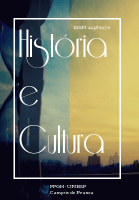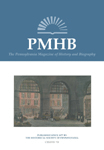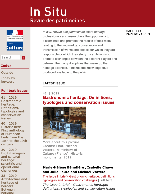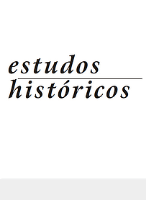
Radovi Zavoda za povijesne znanosti HAZU u Zadru
Scope & Guideline
Bridging Tradition and Modernity in Historical Studies
Introduction
Aims and Scopes
- Historical Documentation and Analysis:
The journal emphasizes the importance of archival research and historical documentation, offering critical analyses of historical records, such as landholding booklets, registers, and letters, to reconstruct past events and societal structures. - Cultural Heritage Studies:
There is a strong focus on the study of cultural heritage, including art, architecture, and literature, which is evident in papers discussing medieval Glagolitic singing, frescoes, and the contributions of notable figures in the arts. - Demographic and Social History:
Research exploring demographic changes, social structures, and the lives of various communities in Dalmatia is prevalent, reflecting the journal’s commitment to understanding how societal factors have shaped historical narratives. - Interdisciplinary Approaches:
The journal promotes interdisciplinary methodologies, blending history with fields such as anthropology, art history, and sociology, to provide a more comprehensive understanding of the past. - Political and Military History:
A significant portion of the journal's publications delve into the political and military history of the region, analyzing the roles of various factions, resistance movements, and diplomatic relations throughout different historical periods.
Trending and Emerging
- Post-War Studies and Memory:
Recent publications increasingly explore post-war narratives, including anti-communist resistance and the socio-political aftermath of conflicts, highlighting the importance of memory and historical interpretation in contemporary society. - Cultural Identity and Heritage:
There is a growing emphasis on cultural identity, particularly in relation to heritage studies, reflecting current academic trends that prioritize the exploration of identity formation and preservation in historical contexts. - Women in History:
The inclusion of studies focusing on women's roles in historical narratives, particularly during the late Middle Ages, indicates an emerging interest in gender studies within historical scholarship. - Digital Humanities and Archival Research:
The integration of digital humanities approaches, particularly in archival research and the dissemination of historical data, is becoming more prominent, showcasing the journal's adaptation to modern research methodologies. - Interdisciplinary Historical Approaches:
The trend towards interdisciplinary research continues to grow, with papers increasingly combining history with other fields such as sociology, anthropology, and art history, reflecting a broader understanding of historical phenomena.
Declining or Waning
- Prehistoric Studies:
There has been a noticeable decrease in publications focused on prehistoric studies, suggesting a waning interest or a shift towards more contemporary historical analyses. - Medieval Maritime History:
Themes specifically centered on maritime history during the medieval period appear less frequently, indicating a possible transition to exploring other historical contexts or periods. - Local Governance and Administration:
Research addressing local governance structures and administrative practices in earlier periods has diminished, possibly as scholars shift their focus to broader socio-political themes. - Economic History of the Region:
The exploration of economic dynamics and trade practices in historical Dalmatia has seen a decline, which may reflect a broader trend in historical research prioritizing social and cultural narratives. - Traditional Historical Narratives:
There is a noticeable reduction in the publication of traditional historical narratives that primarily recount events without critical analysis, indicating a shift towards more analytical and interpretive approaches.
Similar Journals

Historia e Cultura
Innovating Historical Discourse for a Global AudienceHistoria e Cultura is a distinguished open-access journal focusing on the dynamic and multifaceted exploration of history and culture within the context of the Humanities. Published by the UNIV ESTADUAL PAULISTA JULIO MESQUITA FILHO, FAC CIENCIAS HUMANAS & SOCIAIS, the journal serves as a vital resource for researchers, professionals, and students engaged in the fields of historical research and cultural studies. Since transitioning to open access in 2012, Historia e Cultura aims to democratize knowledge by providing free, unrestricted access to high-quality articles that foster scholarly exchange and innovation. Although the specific impact factor remains undisclosed, the journal is dedicated to contributing to the academic discourse through rigorous peer-reviewed research. Situated in Brazil, Historia e Cultura is well-positioned to address both local and global issues, encouraging critical engagement with cultural heritage and identity. Researchers and scholars are invited to submit their work, ensuring that diverse perspectives are represented in the study of our shared history.

Journal of History-NCCU
Cultivating Scholarly Excellence in Historical ResearchThe Journal of History-NCCU is a prestigious academic publication produced by the Department of History at National Chengchi University in Taipei, Taiwan. With the ISSN 0301-9667, this journal serves as a vital platform for scholars and researchers dedicated to the exploration of historical narratives, methodologies, and interpretations, enriching the global discourse in the field of history. The journal emphasizes interdisciplinary approaches, welcoming contributions that intersect with cultural studies, sociology, and political science, thereby appealing to a broad audience of historians, professionals, and students alike. Although it does not currently offer Open Access options, the Journal of History-NCCU maintains a commitment to academic excellence, ensuring that its articles undergo thorough peer review to uphold rigorous scholarly standards. This journal is crucial for those seeking to deepen their understanding of historical contexts and engage with contemporary historiographical debates, positioning itself as an essential resource for advancing historical scholarship.

Radovi-Zavoda za Hrvatsku Povijest
Exploring the Depths of Croatian HistoriographyRadovi-Zavoda za Hrvatsku Povijest, published by the Institute of Croatian History within the Faculty of Humanities and Social Sciences, is a distinguished open-access journal dedicated to advancing scholarly discourse in the field of history, with a specific focus on Croatian heritage and historiography. Established in 1971, this journal has evolved to become a vital resource for researchers, professionals, and students alike, showcasing innovative research and critical perspectives on historical developments in Croatia and the broader region. With an ISSN of 0353-295X and a recent Scopus ranking placing it in the Q3 quartile for 2023, it stands as a testament to the rich historiographical contributions emerging from Croatia. By providing immediate open access to its content, Radovi-Zavoda za Hrvatsku Povijest seeks to enhance the visibility and impact of historical research, facilitating knowledge exchange and academic collaboration. The journal's commitment to excellence is reflected in its rigorous peer-review process, ensuring that all published works meet high academic standards. As the journal continues to converge from 2013 to 2023, it solidifies its role as a key player in the global historical narrative.

PENNSYLVANIA MAGAZINE OF HISTORY AND BIOGRAPHY
Exploring the Intersection of History and Biography in PennsylvaniaPennsylvania Magazine of History and Biography, published by University of Pennsylvania Press, is a prominent scholarly journal dedicated to the exploration and examination of historical narratives and biography with a focus on the state of Pennsylvania. Established as a key resource in the field of history, this journal is distinguished by its commitment to interdisciplinary research and its role in fostering scholarly discourse. With an ISSN of 0031-4587 and an E-ISSN of 2169-8546, the journal is indexed in respected databases, although it maintains a Q4 quartile rank in History according to the 2023 category quartiles. It stands as a valuable platform for researchers and historians, offering insights that illuminate the rich tapestry of Pennsylvania's past and its impact on broader historical trends. The journal is accessible through various platforms, ensuring that contemporary scholars can engage with its content even as it continues to evolve, reflecting the changing dynamics of historical study. As it has been in circulation since 1951, with converged formats from several years through 2024, this magazine remains a cornerstone for those seeking comprehensive studies that integrate local history within wider national narratives.

Istoriya-History
Discovering the Layers of Time TogetherIstoriya-History is a reputable academic journal published by NATSIONALNO IZDATELSTVO AZ BUKI, focusing on the rich tapestry of historical analysis and interpretation. With its print ISSN 0861-3710 and E-ISSN 1314-8524, the journal provides a platform for scholars, researchers, and students to publish their work and contribute to the growing body of knowledge in the field of history. Although it operates under a subscription model, the journal aims to make significant historical research accessible to the scholarly community. The journal’s editorial board comprises experienced historians and academics dedicated to ensuring high-quality peer-reviewed articles that uphold rigorous academic standards. With its base in Sofia, Bulgaria, and an emphasis on both regional and global historical discourses, *Istoriya-History* serves as a vital resource for professionals and enthusiasts eager to understand the complexities of the past and its implications for the present and future.

TRANSACTIONS OF THE ANCIENT MONUMENTS SOCIETY
Engaging with the Timelessness of HeritageTRANSACTIONS OF THE ANCIENT MONUMENTS SOCIETY is a distinguished journal published by the Ancient Monuments Society in the United Kingdom, focusing on the rich interplay between architecture, conservation, and religious studies as they pertain to ancient monuments and heritage. With an ISSN of 0951-001X, this journal serves as an essential platform for researchers, professionals, and students interested in exploring methodologies, case studies, and theoretical perspectives that enhance our understanding of historical preservation and cultural significance. Although it has been classified in Q4 quartiles in prominent categories such as Architecture, Conservation, and Religious Studies, the journal plays a vital role in fostering scholarly dialogue in these areas. Access options and updates are available, making it easier for enthusiasts and experts alike to engage with ongoing discussions surrounding ancient monuments. Despite its discontinued coverage in Scopus, the journal remains an invaluable resource for those aiming to contribute to the conservation discourse and to understand the relevance of ancient sites in contemporary society.

Tuna-Ajalookultuuri Ajakiri
Navigating the Intersection of History and Library ScienceTuna-Ajalookultuuri Ajakiri, published by RAHVUSARHIV-NATL ARCH ESTONIA, is a prominent Estonian journal focusing on History and Library and Information Sciences. With an ISSN of 1406-4030, this journal aims to disseminate valuable insights and scholarly research that contributes to the understanding of cultural history and information management practices, particularly within the Estonian context. Despite its recent classification in the Q4 quartile for both domains in 2023, it serves as a crucial platform for emerging scholars and seasoned researchers alike, fostering dialogue and collaboration in its fields. Covering publications from 2011-2014 and then resuming from 2017-2022, the journal seeks to bridge gaps in historical narratives and enhance the academic discourse surrounding library sciences. While it currently does not offer an open access model, it remains a key reference point for those pursuing in-depth studies in these crucial areas of academia.

In Situ-Revue de Patrimoines
Unlocking the treasures of cultural heritage.In Situ-Revue de Patrimoines is a distinguished open-access journal published by the MINISTERE CULTURE & COMMUNICATION, dedicated to advancing the field of heritage studies. Established in 2001, this journal seeks to foster a deeper understanding of cultural heritage through the dissemination of high-quality research articles, reviews, and case studies that reflect the interdisciplinary nature of the discipline. With an ISSN of 1630-7305, In Situ provides scholars, practitioners, and students with invaluable insights into the preservation, management, and interpretation of cultural assets. By offering open access to its content, the journal ensures that vital knowledge in heritage conservation reaches a broad audience, promoting dialogue and collaboration within the global academic community. Situated in the heart of Paris, In Situ serves as an essential resource for those committed to the stewardship of our shared cultural legacy.

Estudos Historicos
Exploring the Intersections of History and Culture.Estudos Historicos, an esteemed academic journal published by FUNDACAO GETULIO VARGAS-FGV, is a pivotal platform for scholars in the fields of History, Cultural Studies, and Literature. With a focus on contemporary historical discourse and interdisciplinary approaches, this Open Access journal has been fostering scholarly dialogue since 2009, ensuring that vital research is accessible to a global audience. Based in Brazil, it holds impressive rankings, notably within the top tier of the Scopus database, where it is positioned in the 88th percentile for Literature and Literary Theory and the 75th percentile for History. The journal also boasts a Q1 categorization in Literature and Literary Theory, reflecting its commitment to high-quality scholarship. With its comprehensive scope, Estudos Historicos plays a crucial role in shaping the understanding of historical contexts and cultural narratives, appealing to researchers, professionals, and students alike who seek to explore the intersections of history, society, and literature.

Boletin Americanista
Illuminating the Past, Shaping the FutureBoletin Americanista is a distinguished open access journal published by Universitat de Barcelona, Servei Publicacions, providing a vital platform for scholarly discourse in the field of history since its inception in 1959. With its ISSN 0520-4100 and E-ISSN 2014-993X, this journal has consistently catered to researchers, professionals, and students interested in American studies, offering rich analyses and critiques that span various historical contexts. As of 2023, it has achieved an admirable Q2 ranking in the category of History and holds a respectable rank of #997 out of 1760 arts and humanities journals, situating it within the 43rd percentile of Scopus rankings. Located in Barcelona, Spain, the journal serves a global audience, promoting the dissemination of knowledge through free access, thereby fostering an inclusive academic community. The convergence of diverse perspectives from 2011 to 2024 makes it a crucial resource for anyone engaged in the historical analysis of the Americas.